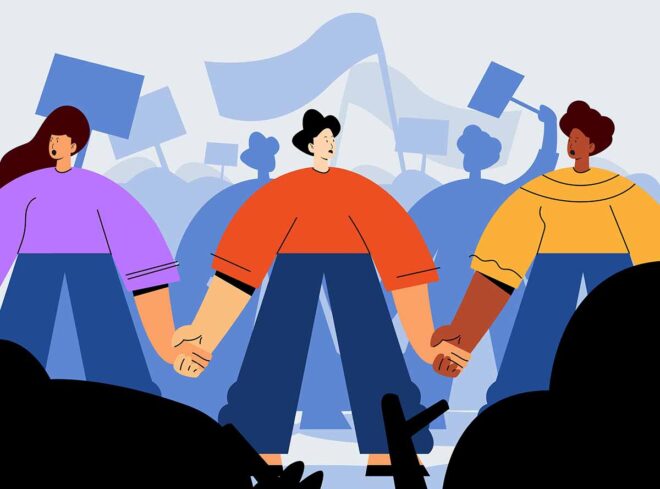
(This is an excerpt from an email I sent to someone, with privacy-conscious modifications.)
Thank you, ○○, for sharing your thoughts.
However, I can’t help but feel that this is yet another instance of “stubborn leftists complaining about the right-wing.” Such a stereotypical view strikes me as being more rigid and closed-minded.
I am not opposed to right-wing individuals participating in counter-protest actions or the fact that (in effect) some on-the-ground cooperation has been established. On the contrary, I’ve recognized the role of right-wing participants in lowering the threshold for direct confrontation with fascist groups like Zaitokukai and have evaluated it positively. With that said, let me briefly share my opinions below.
- 1 The Difference Between Right-Wing “So-Called Counter-Protests” and Ours
- 2 Why a Strong Ethical Foundation is Necessary
- 3 Discrimination Is Not Free Speech but a Violation of Human Rights
- 4 The Self-Righteousness of Those Who Make Counter-Protests Their "Main Objective"
- 5 When the Purpose of Counter-Protests Changes, the Consequences Can Be Dire
The Difference Between Right-Wing “So-Called Counter-Protests” and Ours
Recently, terms like “counter-protests” and “direct action” seem to have taken on a life of their own. Even members of groups like Zaitokukai have started to use these terms (!), almost as if saying “counter-protest” gives them some kind of blanket justification for their actions. This usage is far removed from the counter-protest actions pioneered by leftist groups back in 2009, such as the protest against Zaitokukai’s harassment of a foreign girl in Warabi City or the counter-demonstrations against discriminatory rallies in Kyoto.
Frankly speaking, their version of “counter-protests” seems to boil down to “we’re justified in punishing evil because we’re righteous.” However, the act of obstructing others’ political expression is, fundamentally, “impermissible” under the principle of free speech. Historically, such acts—like the attacks on the anti-nuclear protest tents outside the Ministry of Economy—have been tactics used by right-wingers (their infamous “divine punishment”). Our counter-protests must remain separate from, and in opposition to, these self-proclaimed “counter-actions” by the right-wing. They must not converge.

Groups like Zaitokukai, often rebranding themselves as “active conservatives,” continue their age-old practices. Far from being “true conservatives,” they are subservient enforcers for authorities, carrying out the suppression of public dissent under the guise of “active conservatism.” It’s irresponsible for adults within these circles to deceive uninformed youth, lacking any historical perspective on social movements, into believing that these antiquated, far-right tactics represent something “new” or “innovative.” This manipulation into the right-wing fold is unacceptable.
That aside, our counter-protests are fundamentally responses to discriminatory actions like the suppression of minority self-expression, violent demands for national conformity, and other forms of oppressive conduct from fascist right-wing forces. These are acts of conscientious resistance by ordinary citizens, grounded in solidarity with oppressed people—not loyalty to an ideology or dogma. Our counter-protests are driven by compassion for the oppressed, whereas the right-wing’s counter-actions stem from hatred toward those they deem unacceptable.
Why a Strong Ethical Foundation is Necessary
Unlike the right-wing’s approach—marked by attempts to silence opposing viewpoints and impose their political beliefs—our counter-protests require a universal, moral rationale that goes beyond individual political ideologies. This is the critical distinction between our actions and the street demonstrations of far-right groups targeting, for example, teachers’ unions.
The slogan “fight with kindness” was once a hallmark of the Sanrizuka Struggle. If we lose sight of compassion for the oppressed and act solely out of hatred toward our adversaries, our actions risk becoming indistinguishable from theirs. The public might start to see our counter-protests as merely the ideological opposite of their anti-peace, anti-nuclear, or discriminatory rallies, reducing both sides to mere flipsides of the same coin. This is a danger we must avoid at all costs.
Discrimination Is Not Free Speech but a Violation of Human Rights
As a reference, here is an article I wrote that delves deeper into this issue. If we are to continue this discussion, I’d appreciate it if you could read it first—for both our convenience and clarity.
→ “Discrimination Is Not Free Speech” (Blog HATAHATA)
(This is a continuation of my email to someone, modified for privacy reasons.)
Allow me to continue under the assumption that you have read the previous sections. There are real people who suffer, tremble in fear, and have their hearts torn apart due to Zaitokukai’s actions, which are not just expressions of speech but outright violations of human rights—acts that qualify as crimes.
It is out of solidarity with these individuals that we have stood in the path of these powerful perpetrators who trample on the weak for amusement. It was never about fulfilling ideological political beliefs.
Please do not misunderstand me—I am not dismissing ideology or concepts like “left” or “right” as irrelevant. Rather, these ideas arise from our attempts to understand why this society produces despicable groups like Zaitokukai and what solutions we can pursue. The reverse is not true. The same applies to struggles in places like Sanrizuka or Okinawa.
For example, people in Okinawa may say “Protect Henoko’s ocean,” but they do not say, “Drive out all Americans.” In contrast, there are individuals in Zaitokukai who gleefully chant hateful slogans such as “Shoot all Koreans!”. The difference in the moral and ideological grounding between these two groups is stark and undeniable.
The Self-Righteousness of Those Who Make Counter-Protests Their “Main Objective”
While I could write much more, I’ve tried to elaborate a bit on a topic I briefly mentioned earlier. Has this managed to peel back some of the labels you had placed on me, ○○? On that basis, I would like to consider whether cooperation with the individuals you suggest is possible. (To clarify, on-the-ground cooperation already occurs among counter-protest participants. It would be absurd for participants to quarrel among themselves during a protest.)
It seems to me that the individuals you mention have a weak or non-existent understanding of the following: that counter-protests are fundamentally actions that “should not be done.” Hence, these actions must not impose personal political beliefs, and instead require universal values and moral determination that resonate broadly—not only with the Japanese but with people worldwide. Specifically, counter-protests must be initiated as collective resistance and defense on behalf of victims who are concretely harmed by fascist discriminatory actions (which are, in essence, criminal acts). If you believe this assessment is inaccurate, please provide evidence to the contrary. I am always willing to change my stance if presented with convincing arguments. Whether certain individuals are “good people” or not is irrelevant to this point.
Let me provide my reasons for holding this perspective. ○○, it seems you intentionally cite examples of counter-protests involving Zaitokukai while ignoring instances where those same individuals engaged in “counter-actions” against public gatherings and protests on March 11, April 29, and August 15 this year. While I cannot comment on the individual motives of these so-called “factions,” this is, from our perspective, on-the-ground collaboration with Zaitokukai to attack citizen assemblies. ○○, we must take a comprehensive view. Cherry-picking evidence to suit one’s argument is neither fair nor objective.
I participated in the August 15 anti-Yasukuni protest, and the events during the March 11 demonstration in front of TEPCO this year were decisive. Some individuals hurled vulgar insults at Fukushima evacuees, mocking them relentlessly. A protest statement was issued regarding this incident, which I supported and actively promoted to gather more signatories and organizations. (See also: “Joint Statement Against Disruptions Masquerading as Anti-Nuclear Protests” on Blog Hatagaki.) Instead of mocking evacuees, I’d urge them to engage in their own movement. This was a critical event. No matter how much one disagrees with another’s stance, there are things that simply should not be done. Unless there is an apology or acknowledgment of this incident, cooperation with the individuals you suggest is impossible.
We, for example, did not counter-protest Zaitokukai’s pro-nuclear rally, despite its deeply unpleasant content. Similarly, demonstrations against political parties, corporations, or embassies are seldom targeted by counter-protests. This does not mean we condone or approve of them. Please do not misunderstand. Highly discriminatory actions should be countered, as there are limits to what can be ignored. However, even in this regard, the difference between Zaitokukai’s counters against anti-nuclear protests and our actions against discrimination remains stark. Their so-called counters are nothing more than “divine punishment” against Zaitokukai, fundamentally differing in purpose from ours.
When the Purpose of Counter-Protests Changes, the Consequences Can Be Dire
To summarize, our objectives are entirely different. We do not believe “the enemy of my enemy is my friend,” nor do we believe “the ends justify the means.” If confronted, we respond defensively. However, as the protest statement mentions, our true adversary is not civilian right-wing groups but the Abe administration (and its police/security apparatus). Mutual protection among those within the broader movement is natural. However, I see no need for deeper engagement beyond that.
Finally, allow me to touch on the terrifying consequences that arise when the purpose of counter-protests is distorted. During a counter-protest against Zaitokukai, some participants allegedly hurled slurs such as “You retards!” and “Savages, go back home!” Multiple witnesses reported these hateful remarks. How is this different from Zaitokukai’s “Koreans, go home!”? Isn’t it even worse?
The result was a nightmare where Zaitokukai and certain counter-protesters competed in a mutual exchange of hate speech. We are here to oppose discrimination, not to watch the right-wing tear itself apart. This segment of counter-protests is fundamentally incompatible with our values and cannot lead to cooperation.
Moreover, even individuals within Zaitokukai are people who struggle to find their place in society, and many are drawn to fascism as a result of their alienation. I do not condone their actions but neither do I dehumanize them. That is why, during counter-protests, I yell not “Go home, retards,” but “Come back to us.” (See: “The ‘Netouyo Bashing’ Phenomenon Is Not Someone Else’s Problem.”)
Thank you for reading. I hope my thoughts were conveyed despite the limited space. If you have further questions, feel free to reach out. Although we disagree this time, I hope we can fight together in the future.

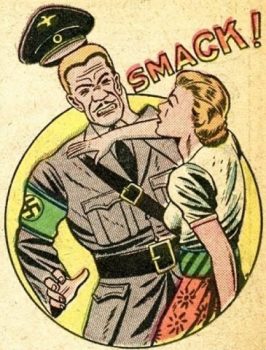


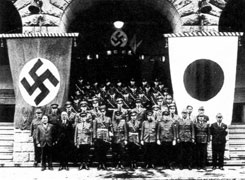

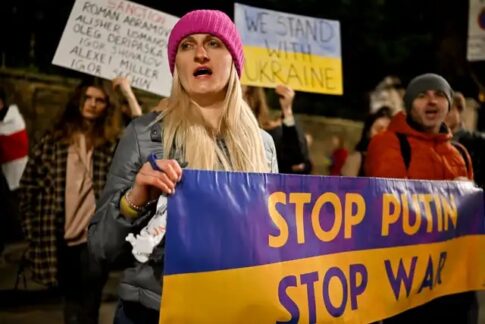


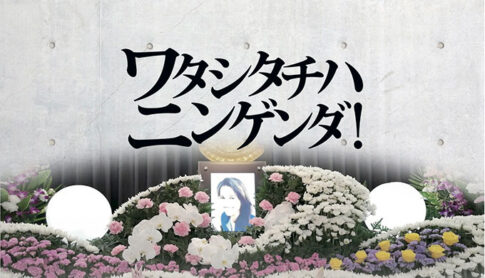
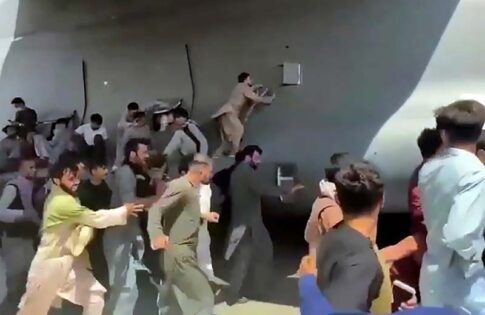



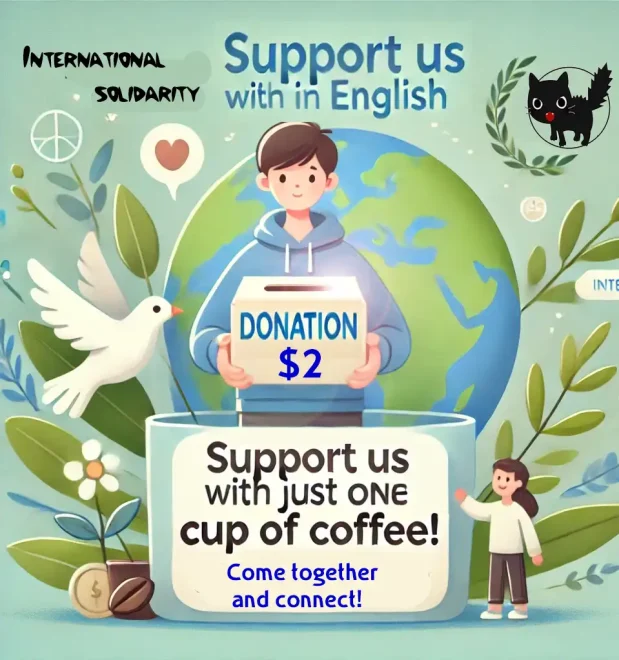 Donations are made in Japanese yen. 300 yen is approximately 2 USD.
Donations are made in Japanese yen. 300 yen is approximately 2 USD.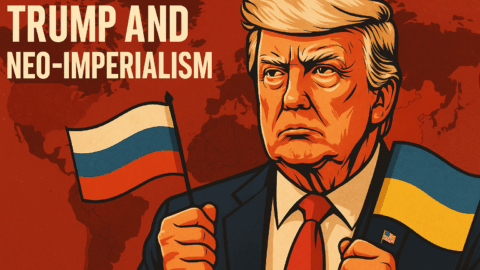

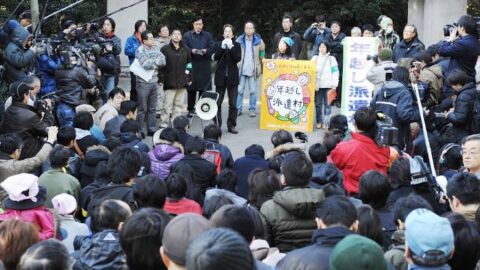
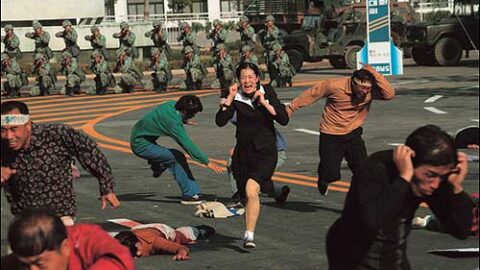


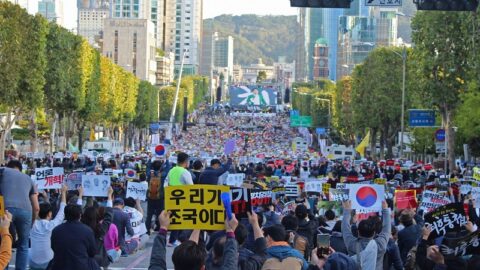
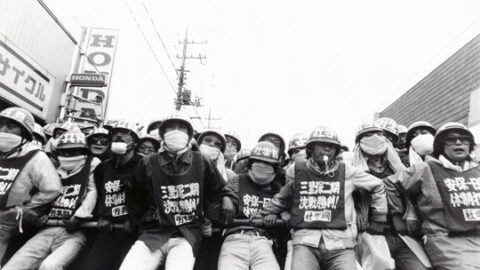

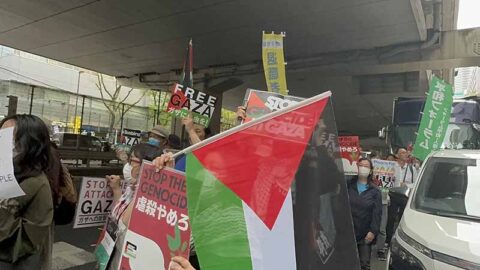
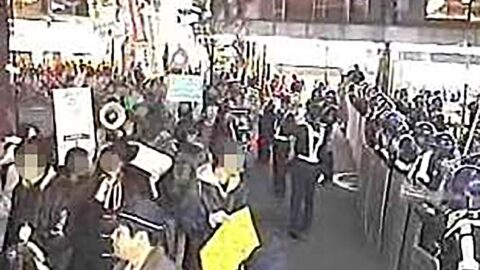


Leave a Reply